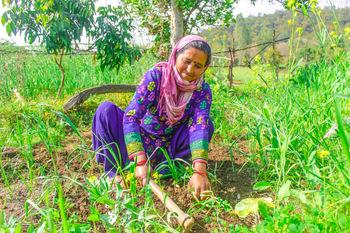Context
Forest and agroforest ecosystems in India play a vital role in sustaining the lives of millions of people. Their benefits include providing fuelwood, timber, fodder and non-timber forest products (NTFPs), and regulating water availability, air purity and local climate. These and other forest benefits are known as forest ecosystem services (FES). While the Indian government has set an ambitious goal of increasing forest cover to 33 per cent by 2030 and is allocating significant state funds to restoration and protection efforts, forest and agroforestry management in India does not yet adequately value the provision of FES, particularly regarding water. Forested watersheds provide 75 per cent of accessible freshwater resources, so protecting forests is directly linked to safeguarding water resources. It is therefore crucial to address water as a vital ecosystem service in forest and agroforest management decisions.



